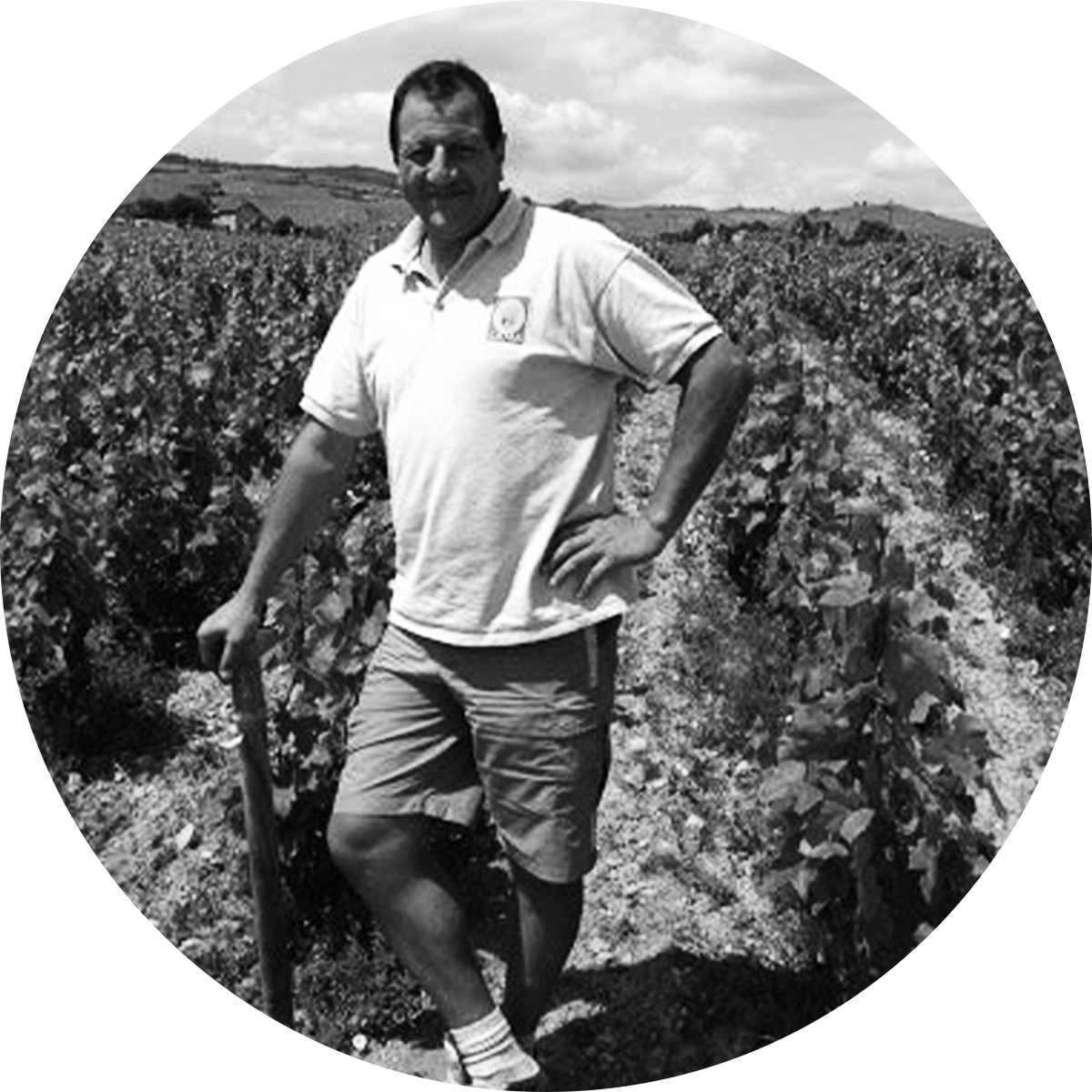DOMAINE VIONNET
KARIM & NOEMIE VIONNET
Beaujolais, France
Working for 10 years as a vineyard-hand and winemaker for Beaujolais legends such as Guy Breton , Marcel Lapierre and Jean Foillard, Vionnet was born in Lyon to Arabic heritage and adopted by a family in Morgon, where he established his own domain in 2006. Technically a negociant, owning no vineyards himself, Karim farms organically 5 hectares around Beaujolais, most of which comprise 40- to 60-year-old vines. In his winemaking, unnecessary intervention and artifices, both in the vineyard and during fermentation, are avoided, emphasising high quality and terroir driven wines.
Fun facts: When he started his winery, he was told that use of his ethnic first name on labels would limit his sales and as a result, he initially labelled his wines simply as ‘K. Vionnet.’ He then embraced his roots and began including his full name on his wines while playing around with his story, naming his Beaujolais Village “Du Beur Dans Les Pinards” which loosely translates into “Arab in your wine” derived from the French expression “du beurre dans les épinards“- something you say when you have extra money that will allow you to “add a bit of butter in your spinach.”
BACKGROUND OF NATURAL WINE IN BEAUJOLAIS
Situated in the eastern part of France, just north of Lyon, Beaujolais is renowned for making outstanding reds from the Gamay grape. The granite soils and semi-continental climate contribute to the unique flavour profile of Beaujolais wines. Each of the 10 Crus, that account for the 15% of total production only, offer distinctive wines with different characters.
Organic, Biodynamic and Natural wine. What’s the difference?
To understand this concept and its various ramifications, it is necessary to keep something clear in mind: before the 20th century and the spreading of affordable synthetic fertilisers, all farming was organic. When the shift to the use of synthetics and pesticides happened, it became necessary to diversify traditional organic farming from the new modern farming.
ORGANIC WINE
Simply put, organic farming forbids the use of synthetic fertilisers, synthetic pesticides, herbicides, or genetically modified organisms. The basic requirements are generally specific and engage the farmers not to use any chemical fertilisers and other synthetic products in the vineyard. It does not prevent the vintner from using the conventional winemaking process after harvesting.
BIODYNAMIC WINE
Let’s take organic farming one step further: Biodynamic. The creator of this agricultural system is the Austrian philosopher Rudolf Steiner, who developed the principles of biodynamics in a series of lectures given in 1924 in Germany. Here lies the foundation of true organic wines, with a strict limit in the use of additives, stringent requirements and at the end obtaining a biodynamic certification.
NATURAL WINE
The previous definitions are usually, and rightfully, associated with it, because most natural wine is also organic and/or biodynamic. But not vice versa!
Natural wine is wine in its purest form, simply described as nothing added, nothing taken away, just grapes fermented. No manipulation whatsoever, minimal intervention both in the vineyards and in the winery. Healthy grapes, natural yeast and natural fermentation, with no filtration nor fining. Sounds easy, right? However, making natural wine is unforgiving and it requires a bigger amount of work than conventional wine. To this day, natural wine has no certification yet.





